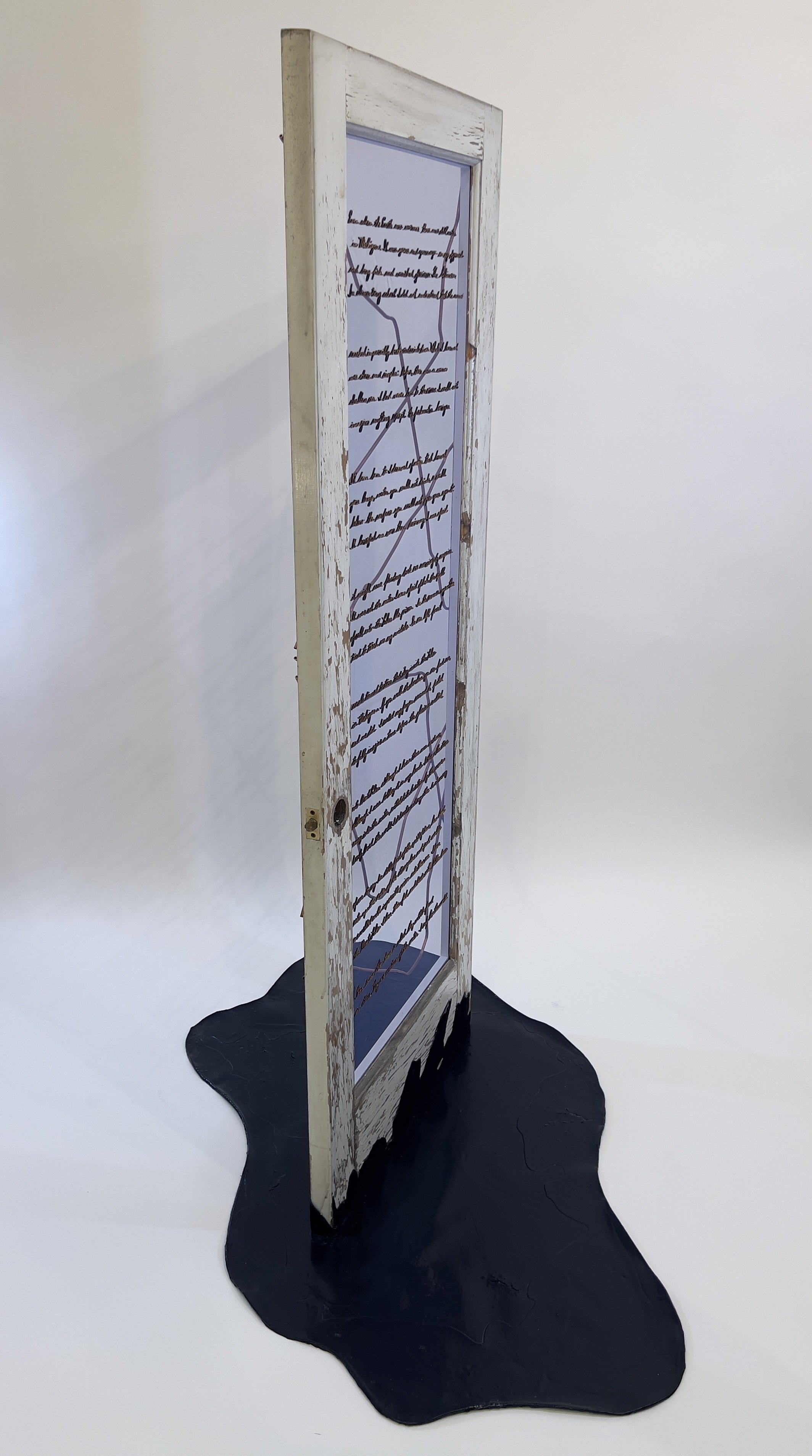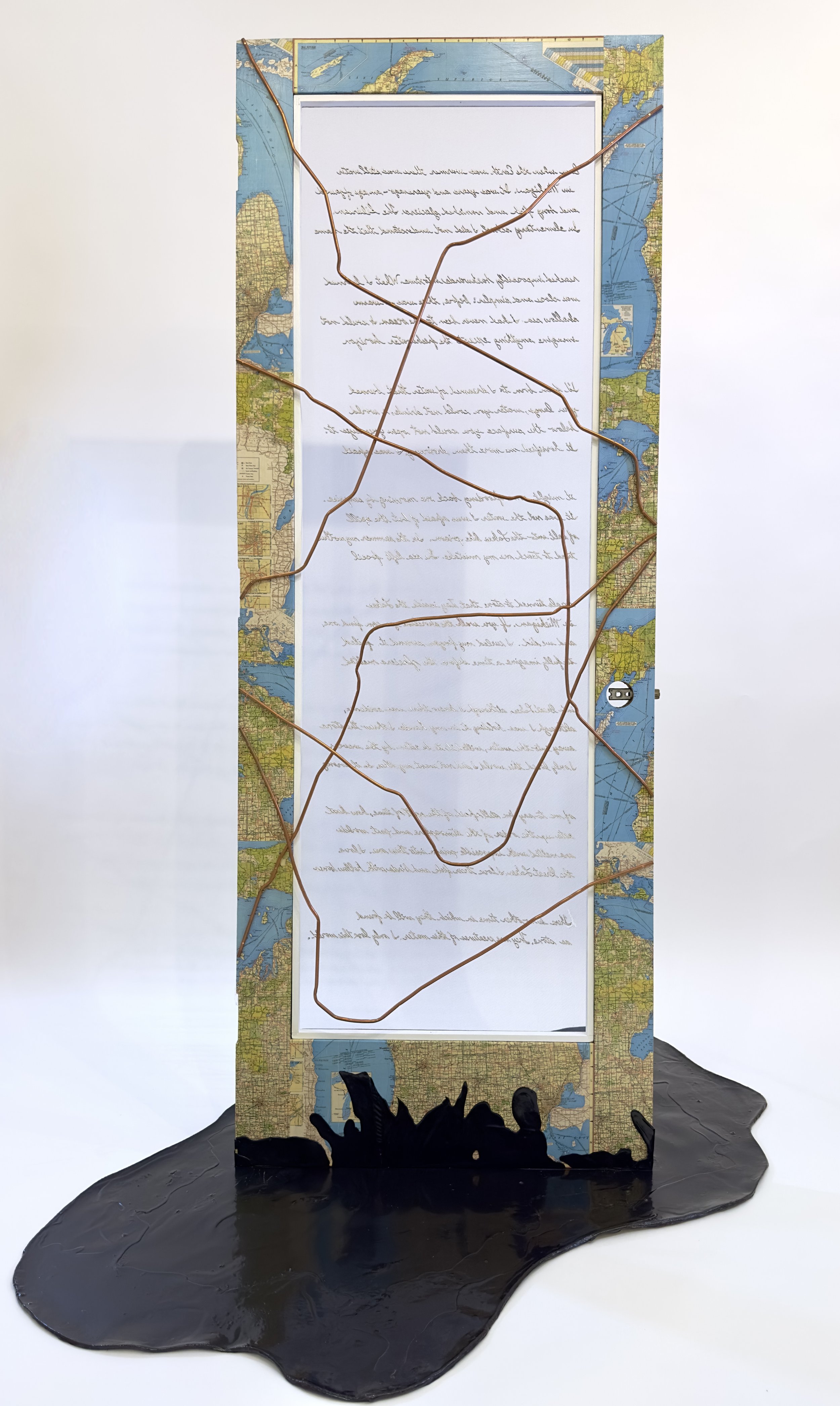Spill, 2022
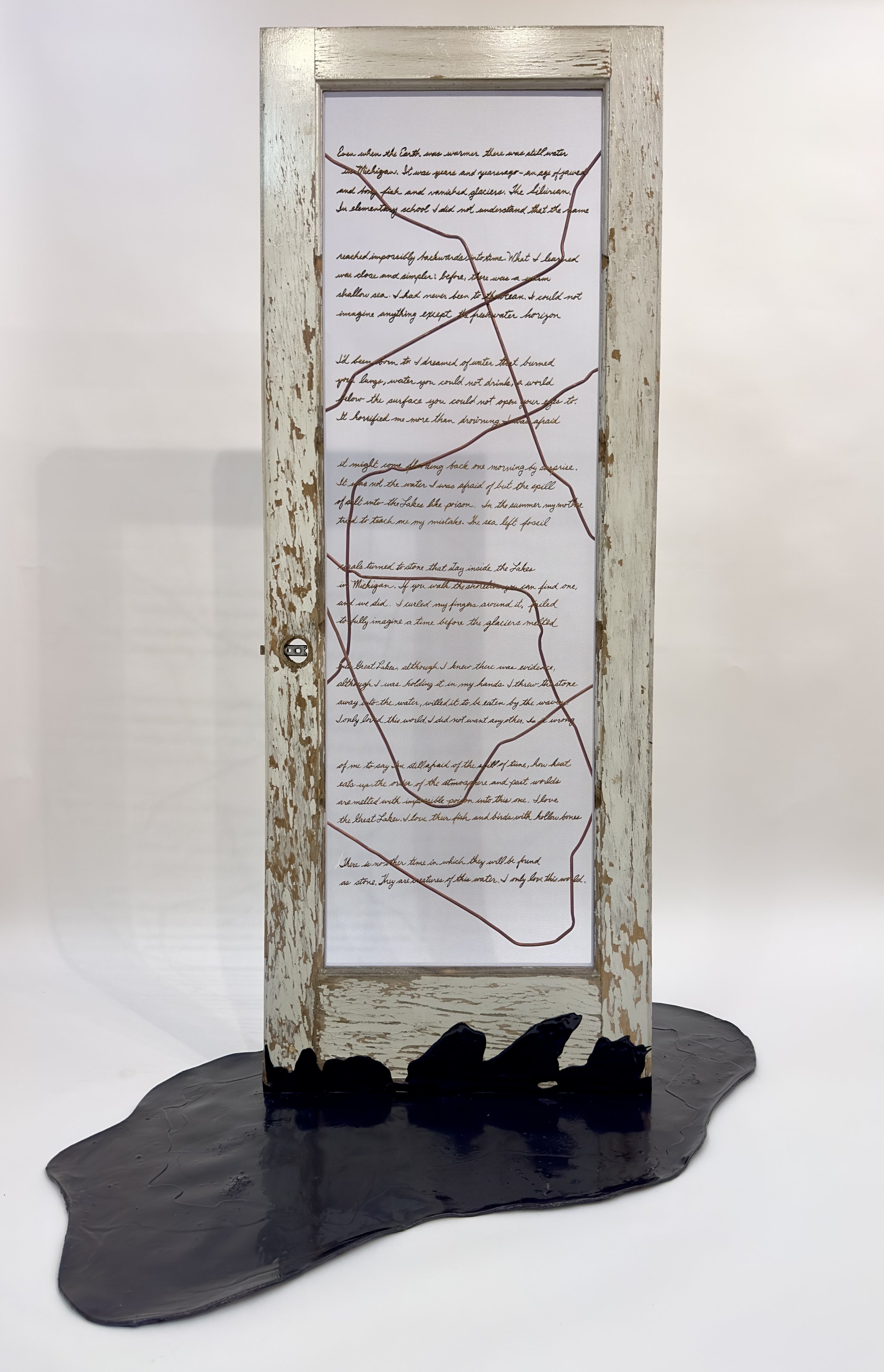
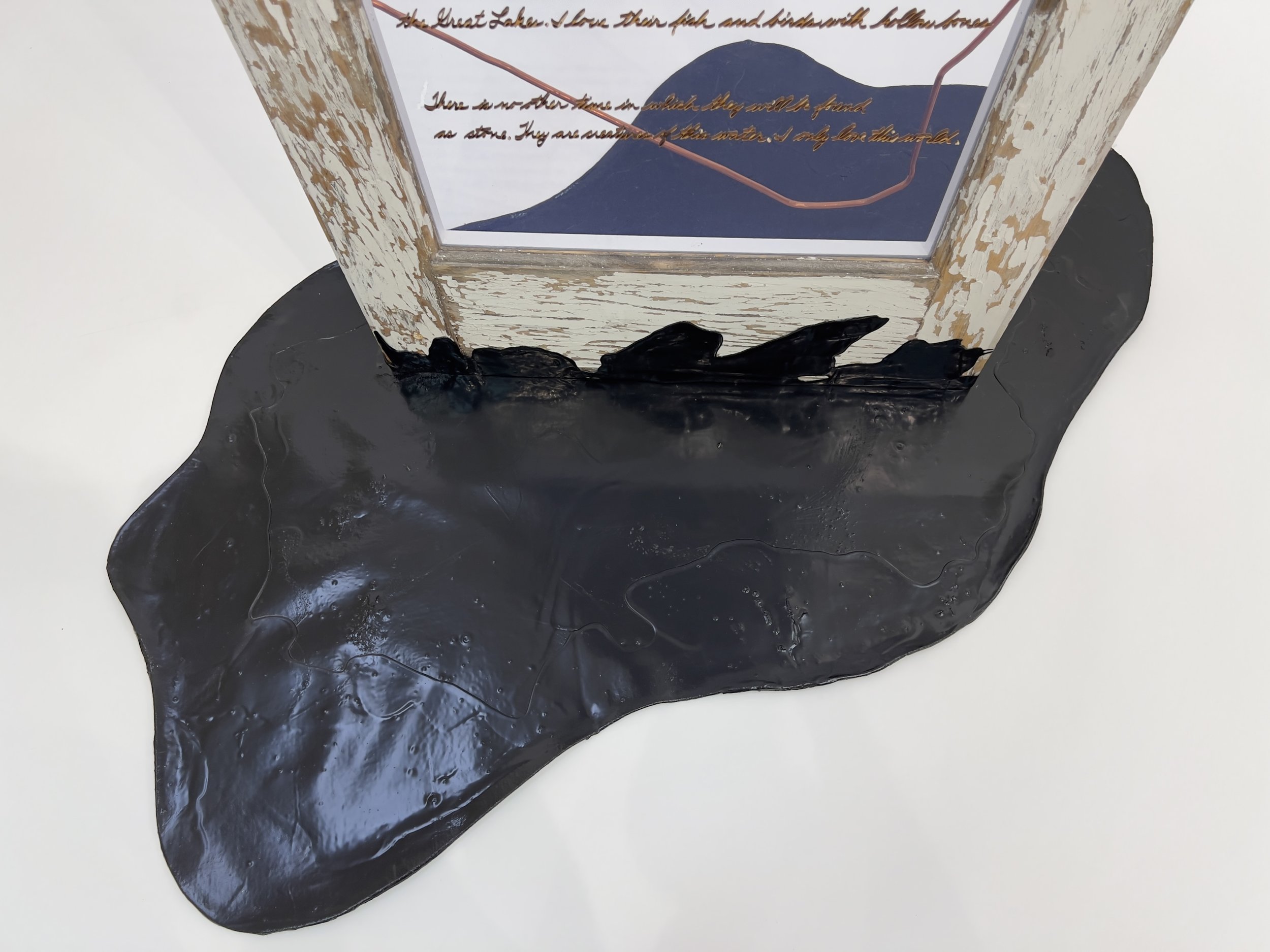

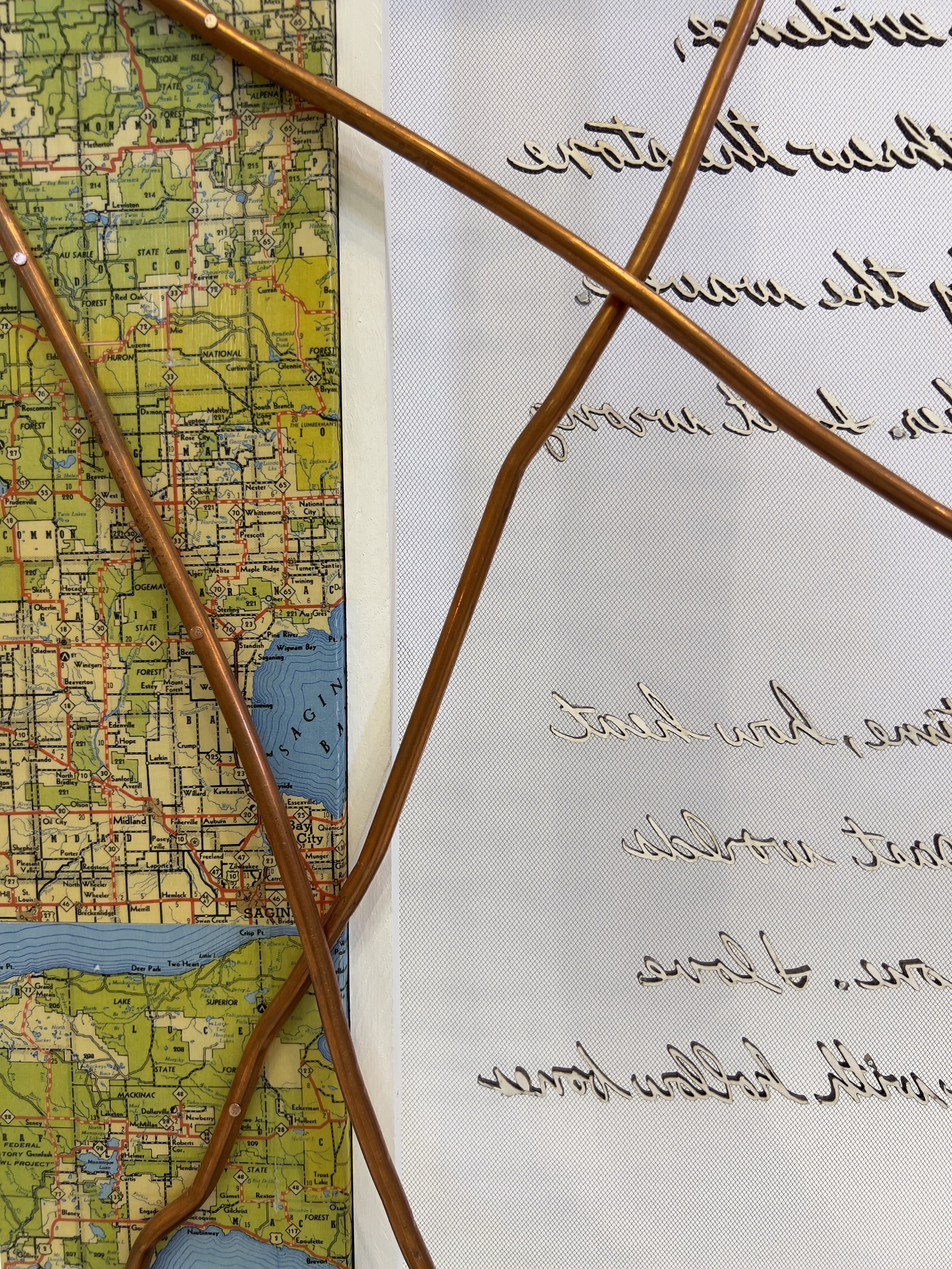
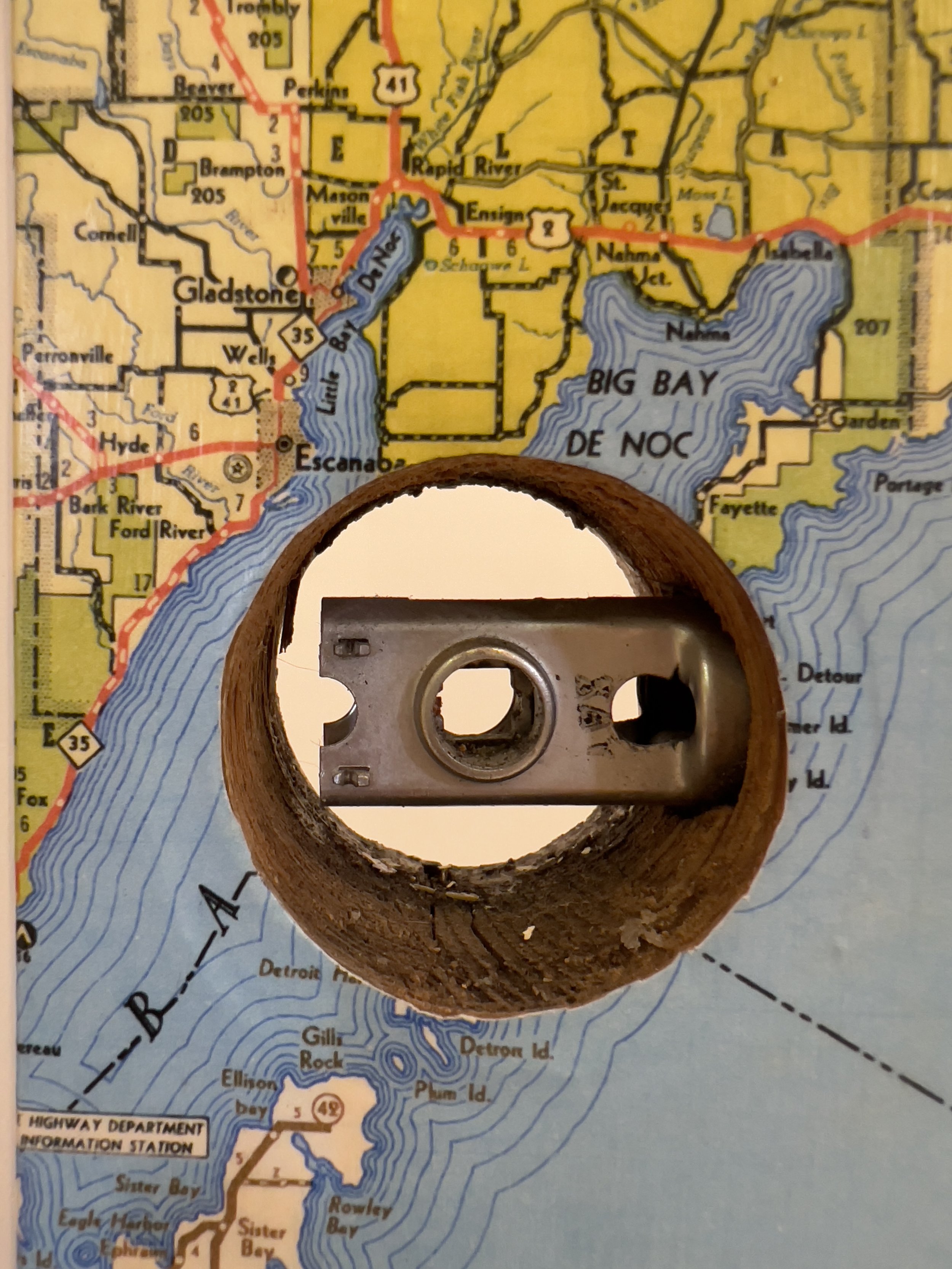

A collaboration between Elizabeth Barick Fall and Sofia Fall
Vintage door, latex paint, copper, vintage Michigan map, baltic birch plywood, bristol board, tulle, steel
We conceived of Spill with this understanding in mind: Although the piece is centered around the destructive presence of Line 5 in the Great Lakes, it also considers larger questions of climate and time, and the magnitude of the past eras and forces that a single fossil fuel pipeline connects to the present. Visually, Spill invites the viewer to confront Enbridge’s continued operation in the Great Lakes and the threat of a Line 5 oil spill. The door serves as a threshold between worlds, and a reminder that there is still a possibility of a different outcome. In its text, the piece grapples with the consequences of another kind of spill–of past ages of the Earth into the world we each inhabit now as a result of climate change. We hope the viewer will come away with a sense that these two seemingly different spills are entirely inextricable from each other.
Click here to read the poem Spill, To Line 5 and other writing by Sofia Fall
To learn more about the threat Line 5 poses to the Great Lakes click here.
The geographer Andreas Malm argues that climate change is fundamentally a disruption of linear time. The present is at its core a relational concept–it has meaning only because of its position relative to both the past and the future. Climate change, Malm says, warps the traditional relationships of time. It prevents the past from staying in the past. It makes it so the weather of today is not an exclusive creation of the present, but also an artifact of historical emissions. The present climate is the result of a disordering of chronology, an overloading of atmospheric carbon dioxide, which was wrenched into our time from its rightful place in the ancient geologic history of the Earth. Today’s carbon emissions similarly do not belong only to today, but also to the future, where their persistence in the atmosphere will disrupt the lives of people who are not even born yet. In this way climate change collapses time: it destroys the boundaries that used to make it possible to believe there was such a thing as a discreet, coherent present.
We conceived of Spill with this understanding in mind. Although the piece is centered around the destructive presence of Line 5 in the Great Lakes, it also considers larger questions of climate and time, and the magnitude of the past eras and forces that a single fossil fuel pipeline connects to the present. Visually, Spill invites the viewer to confront Enbridge’s continued operation in the Great Lakes and the threat of a Line 5 oil spill. The door serves as a threshold between worlds, and a reminder that there is still a possibility of a different outcome. In its text, the piece grapples with the consequences of another kind of spill–of past ages of the Earth into the world we each inhabit now as a result of climate change. We hope the viewer will come away with a sense that these two seemingly different spills are entirely inextricable from each other.
Spill is a collaboration between me and my mother, Elizabeth Barick Fall. The piece combines our often-separate artistic perspectives–hers visual and mine poetic–into a single work.
– Sofia Fall, April 2022
Reference:
Malm, Andreas. “In the Heat of the Past: Towards a History of the Fossil Fuel Economy.” Fossil Capital: The Rise of Steam Power and the Roots of Global Warming, Verso, London, 2016.
